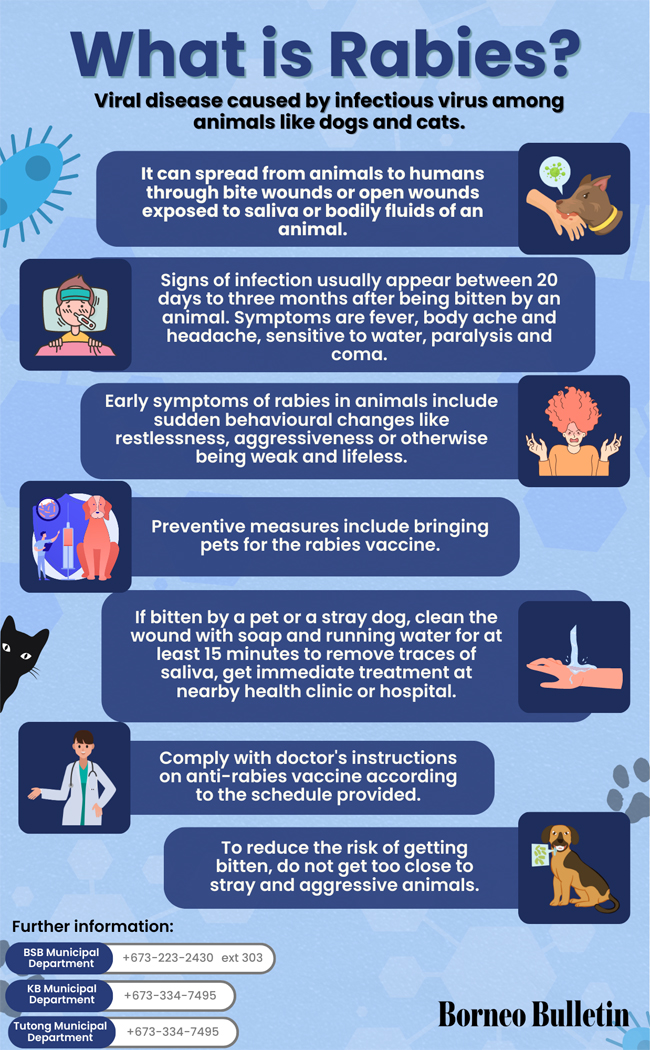The Sultanate has prohibited the import and transit of pets from Marudi, Miri due to recorded cases of rabies infection.
The prohibition is a preventive measure to control animal movement and reduce the risk of rabies entering the country, the Task Force Committee on Zoonotic Disease Control, comprising the Ministry of Health (MoH), the Ministry of Home Affairs and the Ministry of Primary Resources and Tourism, announced.
The task force committee also confirmed that there is currently no case of rabies infection among humans or animals recorded in Brunei Darussalam.
The task force committee, in reference to the press release issued by the Ministry of Food Industry, Commodity and Regional Development of Sarawak, Malaysia on August 15, confirmed that Marudi, Miri has been identified as infected with rabies after a stray dog tested positive on August 2. As many as 73 areas within the state have recorded rabies infections.
Rabies is a viral disease spread through animals, including dogs and cats.
The disease can also spread from infected animals to humans through bite wounds or open wounds exposed to saliva or body fluids.

Early symptoms in animals include sudden behavioural changes such as restlessness, aggression or lethargy. As the disease develops, animals produce excessive saliva, may be sensitive to light and sound, experience paralysis of limbs and can lead to death.
People infected with rabies typically show symptoms after 20 days to three months. Initial symptoms include fever, body ache and headache. As the disease progresses, symptoms may also include fear of water, paralysis and coma.
Members of the public with pet dogs or cats are advised to take preventive measures, including rabies vaccinations at animal clinics. If symptoms are suspected in pets, owners should contact a nearby animal clinic for examination and advice from a veterinary doctor.
The public is also reminded to adopt or purchase pets from trusted sources, ensure pets have received the rabies vaccine and not to smuggle pets.
In case of bites by pet or stray dogs, the MoH advised taking measures to reduce the risk of infection, including cleaning the wound with soap and running water for 15 minutes to remove saliva, seeking immediate treatment if bitten by an aggressive dog or cat and complying with rabies vaccine schedule provided by doctors.
Registered dog owners are urged not to let their dogs loose and unsupervised in public. Under Chapter 60 of the Dogs Act, dog owners or keepers are required to register their pets to obtain a licence and dog badges at municipal departments.
Failure to do so is an offence. If found guilty, offenders face a BND250 fine and in case of default of payment, they face imprisonment of 14 days.
For subsequent offences, a BND500 fine will be levied and in case of default of payment, one month imprisonment. – James Kon





